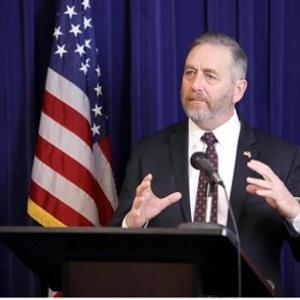With recent U.S. Supreme Court decisions underscoring the importance of defense counsel performance during capital trials, judges across the nation are struggling to balance the high costs of capital cases with the need for adequate representation. In Georgia, Judge Hilton M. Fuller Jr. has delayed the trial of Brian Nichols because the state public defender system has no money to pay for his attorneys and other expenses associated with his defense. Fuller said that it is pointless to proceed with the case because it is unconstitutional not to pay the defense. So far the case has cost Georgia $1.2 million. The state could have avoided the multi-million dollar trial by dropping the death penalty option and accepting Nichols’ offer to plead guilty in exchange for a sentence of life without parole, but prosecutors have refused to consider that option.
Fuller is not alone in addressing the high costs of capital punishment. In October 2007, the New Mexico Supreme Court suspended the prosecution of two prison inmates accused of killing a guard because their lawyers’ pay was so low it was unlikely they could be effective. In Utah, a judge has asked if he can force a lawyer to represent a death row inmate on appeal because, at fees amounting to less than $10 an hour, no one wants the job. In California, a federal judge complained in May that death row inmates were waiting more than 3 years to get an attorney because the state would not raise the hourly rate. In New Jersey, a 2005 study revealed that the state had spent $256 million on the death penalty since 1983 and had not executed a single inmate. Arizona, Texas, and Louisiana are also facing similar troubles.
“(T)he right to counsel is as fundamental as it gets - every other right depends on it,” observed Stephen B. Bright, a capital defense attorney and president of the Southern Center for Human Rights in Atlanta.
Though many states are still struggling to address the costs associated with expensive death penalty cases, some jurisdictions have established programs that have successfully reduced spending. For example, North Carolina has established what many believe to be a model capital defense system that comes closer to ensuring that the death penalty is reserved for the worst of the worst offenders. Since the program opened in 2001, the state has gone from an average of 24 capital convictions a year to 5 while reducing the reversal rate.
(New York Times, November 4, 2007). See Costs.
Costs
Jul 06, 2023




